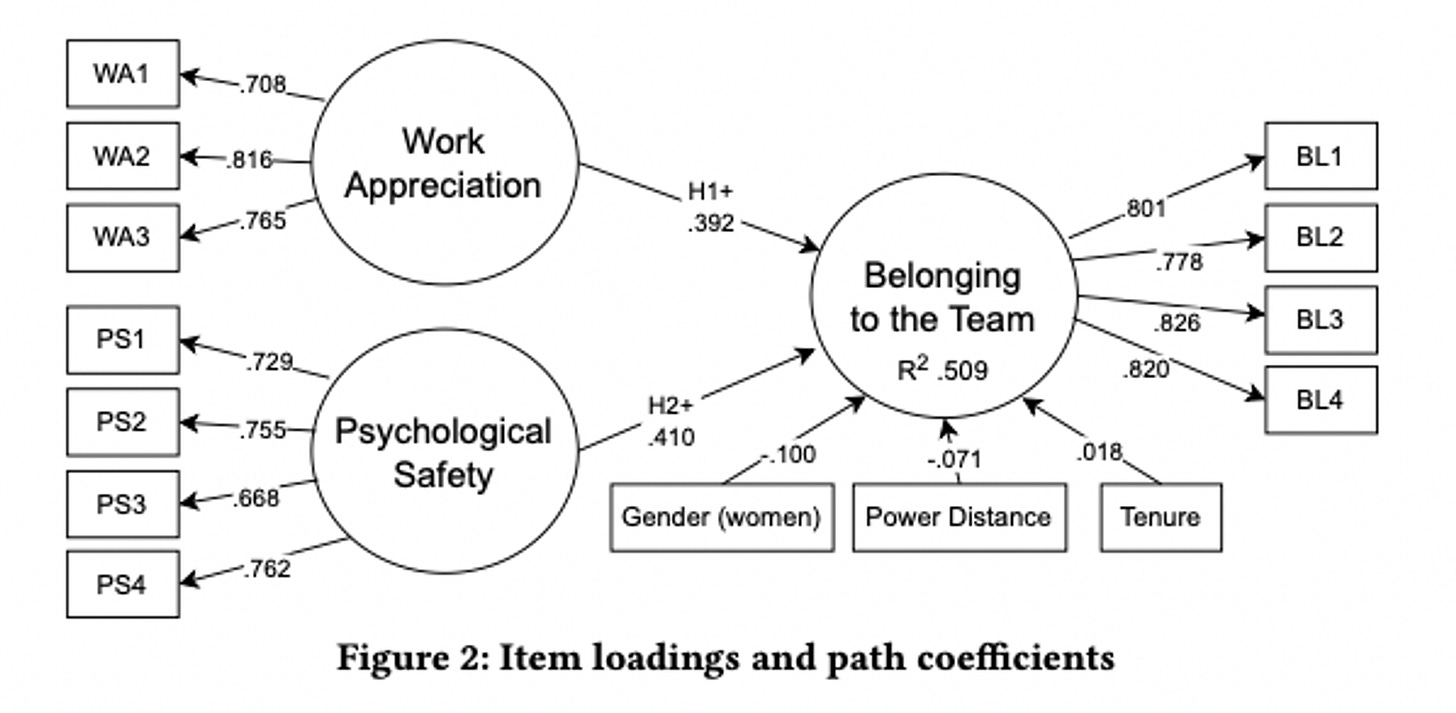RDEL #37: What drives sense of belonging on software teams?
This week we study what factors drive sense of belonging in engineering teams, both on a team level and a leadership level.
Welcome back to Research-Driven Engineering Leadership. Each week, we pose an interesting topic in engineering leadership, and apply the latest research in the field to drive to an answer.
Research has shown that teams with high sense of belonging are able to work more effectively and deliver more value. This is because communication is easier, trust is high, and the team has a supportive environment to experiment and learn. But what are the best conditions for improving and maintaining sense of belonging? In this week’s RDEL we endeavor to find out: what drives sense of belonging on engineering teams?
The context
Having a high sense of belonging on teams has outsized benefits on team performance for a number of reasons. A sense of belonging in software teams enhances collaboration and trust, fostering a supportive environment where team members feel comfortable sharing ideas and taking risks. It directly contributes to higher job satisfaction, engagement, and retention, reducing turnover rates and the associated costs of recruiting and training new talent. Ultimately, a strong sense of belonging leads to improved team performance and productivity, driving innovation and the successful delivery of software projects.
For many managers, identifying and improving sense of belonging on engineering teams is challenging, as it’s not immediately clear what makes a team “click” while others suffer. In this study, we aim to find the top factors that drive sense of belonging for software engineering teams.
The research
Researchers at Northern Arizona University conducted a large-scale survey involving 10,781 participants from a global software delivery organization, analyzing the data through Partial Least Squares–Structural Equation Modeling (PLS-SEM). They focused on identifying key organizational factors, such as work appreciation and psychological safety, and their influence on the sense of belonging.
From the study, researchers found that:
Psychological safety and work appreciation are positively associated with a sense of belonging within software delivery teams. Notably, psychological safety had a stronger correlation with sense of belonging than work appreciation.
Women who are not in leadership positions feel a lesser sense of belonging when compared to both men and women who are in leadership positions
For leaders, the strongest predictor of sense of belonging is the feeling of making a difference in the company. For non-leaders, being recognized by leaders is the strongest predictor influencing sense of belonging on the team.
Authoritativeness (associated with countries having high power distance) is negatively related to the sense of belonging, while organizational tenure positively correlates with it regardless of role.
The application
The findings of this study show that there are some clear levers that software teams can use to increase and maintain sense of belonging. Here are some examples:
Psychological safety is crucial. When teammates feel comfortable taking risks without being reprimanded, their sense of belonging improves. It also improves productivity, as highlighted in the SPACE framework for developer productivity. Psychological safety has many downstream effects as well, as covered in this study.
Create a culture of peer appreciation. The findings of this study corroborate the self-determination theory, which states that people who feel competent in their social interactions are more likely to establish positive connections and feel higher sense of belonging. When the team shows appreciation for one another’s work, they can feel pride in their work and motivated to continue.
For managers, recognize your team’s efforts. For non-leaders of a company, recognition from leadership was the strongest predictor of belonging on the team. Being an effective leader means reinforcing the impact your team has, and recognizing the efforts they make towards achieving that impact. Doing so will improve your relationship with your team, and increase their overall productivity.
—
We hope this gave you a useful way to evaluate your team’s sense of belonging and strive to a healthier, higher-performing culture. Happy Research Monday!
Lizzie
From the Quotient team


